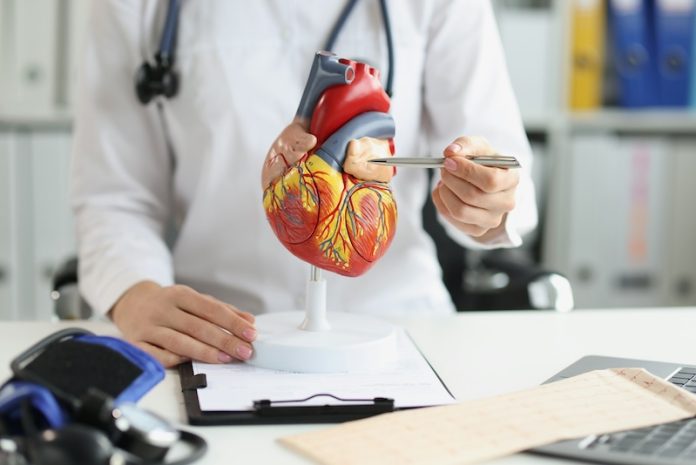
Doctors agree that lowering LDL cholesterol—the so-called “bad” cholesterol—can make a real difference in preventing and treating heart disease.
High LDL levels can clog arteries, raising the chances of heart attacks and strokes. That’s why lowering LDL is a key goal in heart care.
In a new article published in Trends in Cardiovascular Medicine, researchers from Florida Atlantic University say heart doctors should start treatment with the strongest statins available. These include rosuvastatin and atorvastatin.
Statins are medicines that lower cholesterol. The researchers believe doctors should begin with high doses and then reduce the dose if needed, rather than starting low.
They also stress the importance of healthy habits. These include quitting smoking, staying at a healthy weight, keeping blood pressure under control, exercising regularly, and limiting alcohol. These changes help protect the heart whether or not someone also takes medicine. However, lifestyle changes alone may not be enough for many people.
About 40% of adults in the U.S. have metabolic syndrome. This means they may have a mix of obesity, high blood pressure, high blood sugar, and bad cholesterol levels. These people have a similar risk for heart problems as those who have already had a heart attack or stroke, but many don’t know they’re at risk and don’t get the treatment they need.
The article also notes that fewer than one in four Americans get enough daily exercise. But it’s never too late to start. Even older adults can benefit from becoming more active.
The researchers looked at many studies and found that statins—especially rosuvastatin and atorvastatin—work well for both men and women, even older adults. Because people usually stay on the same dose they were first given, the authors say doctors should start with the highest dose and only lower it if there are problems.
Statins work well, and they also work well with aspirin. Aspirin can help prevent blood clots. Most people who have already had a heart problem should take aspirin. For those who haven’t, the doctor should decide based on whether the person is more likely to have a heart problem or a bleeding problem.
The researchers suggest that other medicines like ezetimibe and evolocumab should only be used in special cases. For example, these medicines might help people with very high cholesterol who don’t improve enough with statins alone.
In earlier studies, these drugs showed only small benefits unless used in people who were already taking the highest dose of statins.
The article also talks about omega-3 fatty acids, such as those found in fish oil. Older studies showed some benefits, but newer studies didn’t—possibly because most people in those newer studies were already on statins.
One study called REDUCE-IT found that a special kind of omega-3 called icosapent ethyl helped people who were already on statins. It reduced the chance of heart problems by 25%, and only 21 people needed to take it to help one person avoid a major heart event.
Dr. Charles Hennekens, the lead author, reminds us of a famous quote from Benjamin Franklin: “An ounce of prevention is worth a pound of cure.” The message is clear—starting strong with proven treatments like statins, along with healthy lifestyle changes, can save lives.
If you care about heart disease, please read studies about a big cause of heart failure, and common blood test could advance heart failure treatment.
For more information about heart health, please see recent studies about a new way to repair human heart, and results showing drinking coffee may help reduce heart failure risk.
The study is published in Trends in Cardiovascular Medicine.
Copyright © 2025 Knowridge Science Report. All rights reserved.



